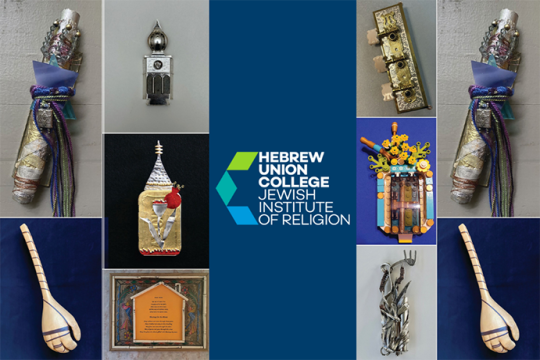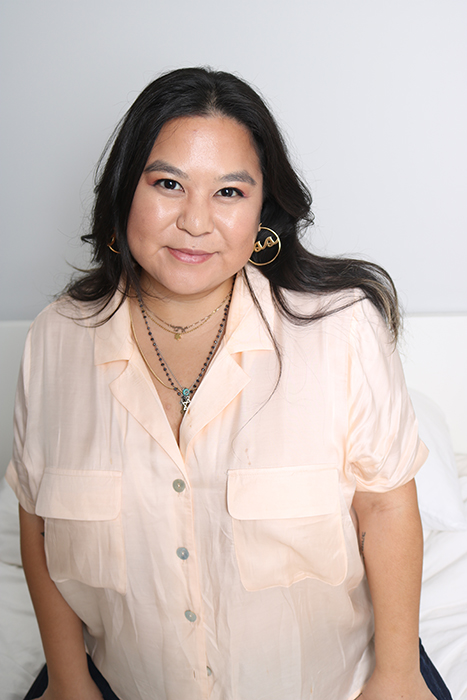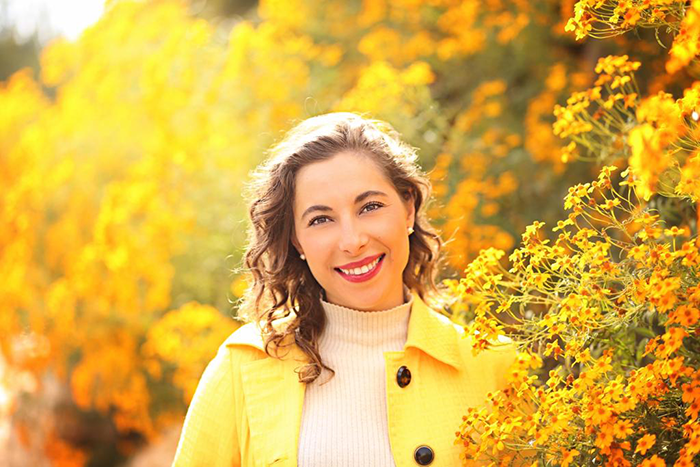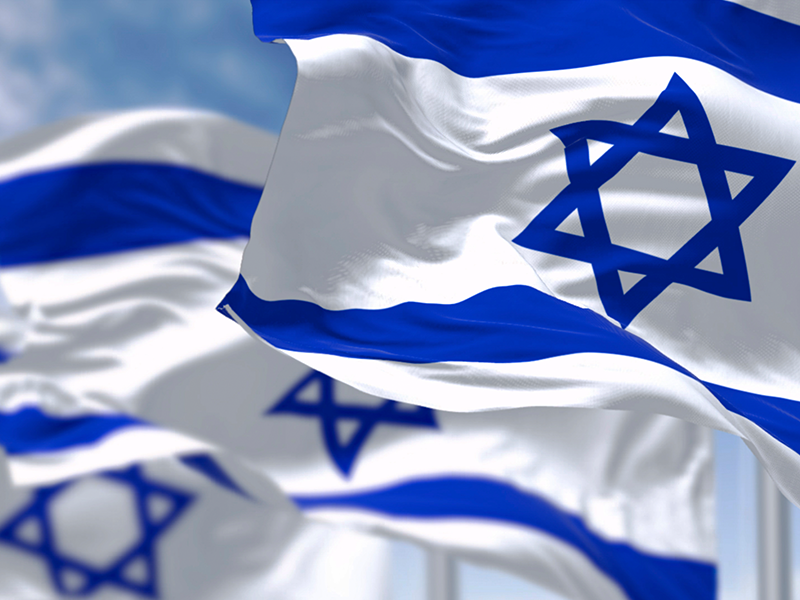Q&A with Chinese Jewish Advocate and Educator Amy Albertson
Amy Albertson (she/her) is a Chinese Jewish advocate and online educator living in northern California. She works as a social media consultant for Jewish organizations.
What informs your Chinese and Jewish identities?
For all intents and purposes, I grew up in a very American, I suppose you could say assimilated, home. On my Jewish side, I am third generation [American] and on my Chinese side I am third and fourth generation, so we are quite American. That being said, for as long as I can remember, I knew that I was Chinese and Jewish. If someone asked me, "what are you?" I knew to answer "half Chinese and half Jewish" - even though I didn't have the knowledge to explain what this meant to anyone.
I think one of the biggest ways both sides of my family maintained and passed down culture to me was through food. My Chinese side marked basically everything with food. How did we celebrate a birthday, someone visiting, or an anniversary? We went to get Chinese food or Dim Sum together (and usually ice cream cake back at my grandma's afterwards). My grandpa was already second generation, so he cooked all kinds of food, but he had a Chinese style to what he made. Certain sauces and oils were standard in the house, and until I was much older, we had rice with every meal. I knew these things were distinctly Asian or Chinese because I only saw them at my other Chinese friends' houses.
On my Jewish side, I remember going to the local Jewish deli from a very young age. My grandmother grew up in Brooklyn so bagels and delis are very serious for her, as you can imagine. I remember thinking that [what] made us Jewish... is that we always ate bagels and matzah brei and challah French toast. I had no idea [about] the cultural significance of any of these things until I was basically an adult, but I knew they came from my Jewish culture.
The second biggest way that we maintained our culture, even if quite loosely, was through holidays. Although we never did the days-long celebration of Chinese New Year like they do in China, we marked the holiday by (you guessed it) going out to eat Chinese food together and my grandparents gave us Lai See (red envelopes filled with money). When I was young, we also used to go to San Francisco (where my grandma was born) for the Chinese New Year parade - something I [didn't love] because the firecrackers scared me.
On my Jewish side, we always celebrated Hanukkah and Passover, but not quite in the same way as most others do. In my parent's house, the went with the Christmas tree (a totally secular tradition for us), and my grandma would have us come for just one night of Hanukkah and we'd light all eight candles at once. Looking back on it, it is kind of funny to me. We also had a Passover seder, but there was no Haggadah. We instead read another book that told the story of Passover much more briefly and explained why we celebrate the holiday.
It was through these things that I always felt or knew I was Chinese and Jewish, and I never hesitated to tell anyone who asked. I didn't consciously experience antisemitism until middle school, so I never thought to hesitate when anyone asked me "what I was."
I did receive a lot of questions and comments challenging me about being "half Jewish" (a term I no longer choose to use). Most Americans only know of Jews as a religious group, so I'd get questions about if I went to synagogue and things like that. Also, my dad is my Jewish parent, and most of my life I was not aware of and that halachically I was not Jewish. My family never treated it this way, so I was confused by people's questions. And I knew next to nothing about who the Jewish people were so I couldn't explain it to anyone.
How has your perspective of identity shifted?
I've grown a ton in my identities in my adult life. I think part of that shift happened when I went to college in Portland, Oregon - a predominantly white city with a lot of antisemitism. Growing up in a diverse place with lots of specifically Asian peers, I was who and what I was, but it wasn't anything too different or surprising. Once I went to college in a place like Portland, I suddenly was a Person of Color. This made me realize, in both good and bad ways, what it meant to be Chinese and Jewish.
This was coupled with me diving into my Jewish identity very deeply. I truly started to learn and understand the history of the Jewish people in college. This enabled me to understand how I could be Jewish through culture and not necessarily religious practice. Learning about the legacy of the Jewish people also really strengthened my Jewish identity because I am so proud of our heritage, rich tradition, and resilience to survive so much destruction.
Traveling to and living in Israel is what made me realize how Chinese I am. Unlike where I grew up, in Israel, there were very few Asian people and that made me realize how Chinese I am (even if around other Chinese people I feel totally Americanized).
As a young person I took my identity for granted, which perhaps came with the innocence of being a kid and the privilege of being protected by a diverse society. Now I see it is more complicated. Identity is complicated because it is deeply personal and simultaneously about these groups we come from or fit into. And being from multiple groups is hard. When you are in either group you feel like you're not "enough" - I'm either not Jewish enough or not Chinese enough. And when I'm with predominantly Jewish people I feel so Chinese, and vice versa. Recently I've connected with a group of Asian Jews, and it is such a trip! We all have kind of floated in that in-between area.
What message do you hope to offer to the world about Asian American heritage, Jewishness, identity, etc.?
I'd say to people who feel either indifferent to their identity or maybe even fearful of it, don't be. It is so incredible to get in touch with your roots and find out who you are. It can come with challenges, of course, but the good outweighs the bad in my experience. Especially in a place like America (or even Israel), discovering who you are, exploring and experiencing that, is so eye-opening and an amazing experience. Every group has gone through something, has a history, a legacy, traditions, and culture, and it feels great to have things like that to celebrate and hold on to. It's also fun! Especially when you engage in cultural exchange with others. It is amazing to have someone show you their culture and to share yours with them in return.
What do you want the Jewish community to know about the Asian American experience today?
The Chinese [American] and Jewish American experience has long been intertwined in the United States. What I want people to know and understand is that Asian Jews exist, and although we do have our Asian culture in addition to our Jewish culture, we are mostly just American Jews like everyone else. I think we often get exoticized, feel questioned, or "othered." We are not all adopted, but some of us are. We are not all converts, but some of us are. I realize that interracial and interfaith marriage has been looked down upon in the U.S. and often still is in [some] Jewish communities but get over it. We are a diaspora people and mixing enriches, not diminishes, us. It is treating us like "others" that leads us away from the community.
I'd also say to be careful about the way the Jewish American community claims Chinese culture. I understand lots of Jews in America love Chinese take-out, but Chinese food is not Jewish. It is Chinese. I understand that many Jewish people (my grandmother included) play Mahjongg, but it is a Chinese game. There are ways to enjoy these things without claiming them for yourself. Just be conscious of that.
How will you celebrate Asian American heritage month this year?
I'll probably celebrate by eating Chinese food! Hahaha! I'm an online educator so I'll probably mark the month with some educational content on Instagram. Maybe I'll look for festivals or rallies to go to. I think trying to just be with "my people" is what feels good these days.
Related Posts
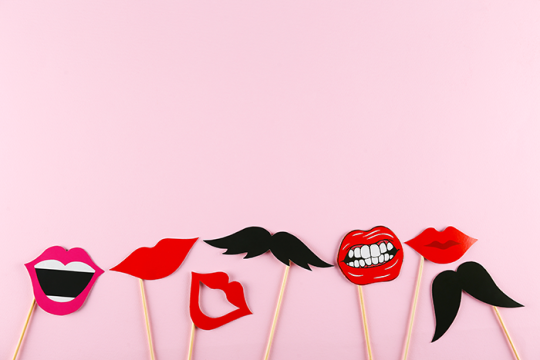
Seven Jewish Comedians Sparking Joy
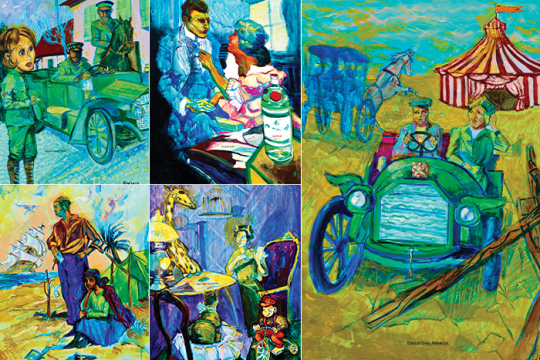
Visualizing Audacious Biblical Women for Our Times
